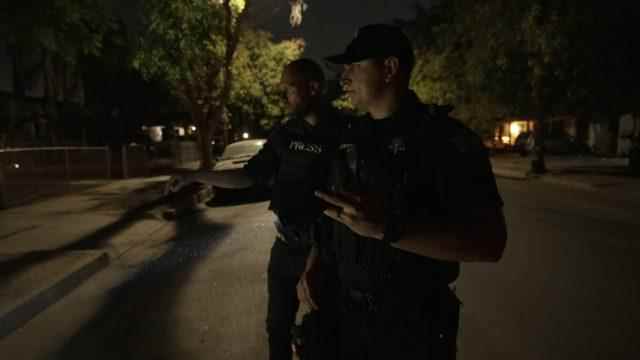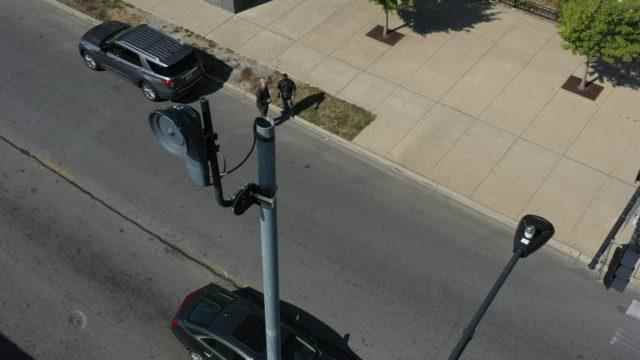Although the call center of the startup ShotSpotter in the USA may seem familiar, the responsibility of the employees is much higher.
The algorithm developed by the company is tasked with determining whether a detected sound belongs to a fired weapon.
Making a wrong decision can have disastrous consequences.
The company has long been the target of criticism in the media.
There are numerous accusations that his technology is not correct or that it discriminates among the cops.
In the midst of all these accusations, ShotSpotter gave BBC News access to the company.
According to the news of the BBC’s North America correspondent James Clayton, the company is trying to solve a serious problem.
Ralph Clark, head of ShotSpotter, explains, “What makes this system so important is that 80 to 95 percent of gunfire cases are not reported to the police.”
There may be more than one reason for this, some people may not be sure of what they heard, some think that someone else is calling 911, or they may not trust the police.
The founders of ShotSpotter, on the other hand, aim to detect this with another system by completely bypassing the 911 system.
For this, microphones have been installed in certain buildings in the neighborhoods.
Whenever a loud noise is heard, the computer tries to figure out if it’s a gunshot or something else.
Then an analyst steps in and clarifies the decision.
‘The bullet only travels in one direction’
Ginger Ammon, a former teacher in the room where the incidents were investigated, shows that the algorithm gives a ping warning each time it hears a potential gunshot.
Ammon first listens to the sound himself, and then studies the sound waves seen on the computer screen.
“We’re looking at how many sensors detect sound and whether they’re traveling in one direction, because theoretically, the bullet can only travel in one direction,” Ammon explains.
If he is sure that a gun has been fired, he has the police dispatched to the scene.
All this happens in less than 60 seconds.
How accurate is the data provided by the company?
In April 2017, Kori Ali Muhammad intended to shoot and kill a large number of whites in a neighborhood in Fresno, California.
The police were getting 911 calls; however, these calls were not very clear.
ShotSpotter, on the other hand, was able to detect Muhammad’s path.
Three minutes and three murders later, Muhammad was taken into custody.
According to the police, more people would have died if it weren’t for ShotSpotter.
The company is good at convincing cops to use their technology.
It has installed its microphones in 100 cities of the USA so far, but its technology is being discussed.
After the murder of George Floyd, people became more curious about the technologies used by the police.
ShotSpotter has expensive technology if it is desired to be located in the whole city.
That’s why microphones are placed in neighborhoods where mostly blacks live.
If the company’s technology isn’t quite as accurate as it’s been criticized, it’s having a corrosive effect on those communities.
ShotSpotter argues that it has an accuracy rate of 97 percent.
However, it is not possible to confirm this.
If this ratio is not correct, it means that there will be serious consequences for the justice system.
The difficulty in confirming this data is that it is difficult to determine whether a weapon has been fired in the field.
When these allegations were investigated in Chicago, only 9 percent of the warnings received by the company found physical evidence that a weapon had been fired.
According to the authorities, this is a low rate.
This means that in 91 percent of cases it is not possible to prove whether a weapon was fired.
‘Marketing bullshit’
Clark, the manager of ShotSpotter, states that they determine the reliability of their systems based on what witnesses in the field say.
According to critics of the company, ShotSpotter’s system is based on ‘maybes’.
According to Chicago attorney Brendan Max, the company’s data is “marketing bullshit.”
Conor Healy, who analyzes security systems for video surveillance research group IPVM, also questions the accuracy of the company’s data.
Healy emphasizes that the police do not record every single false alert with feedback to ShotSpotter; He states that if there is data proving his claims, the company should share it.
It is alleged that it negatively affects the perception of the police
The rate of crimes committed with firearms is increasing in the USA.
During the night shift, the police can go to a crime scene that did not happen with ShotSpotter’s warnings.
Across the country, this is used in courts by both the defense and the prosecution.
If the company’s data isn’t as reliable as it claims, ShotSpotter sends police officers to an incident where they think guns were used when they weren’t.
“Police expect the situation to be hostile. They think there would be a gun at the scene, even a black or brown individual would be holding a gun,” explains Alyxander Godwin, who is campaigning to get rid of ShotSpotter in Chicago.
However, there is no data in the company that reveals this situation.
Clark responds to these allegations by saying, “Described here is a police officer going to a crime scene and shooting at unarmed people. I’m beyond the fact that this is not in the data, this is direct speculation.”
But Clark also acknowledges that his company’s methodology has its limits.

‘It should not be used as evidence in courts’
Chicago attorney Brendan Max argues that ShotSpotter reports should not be used as evidence in court until the company can substantiate its data.
“I know that in the last 4-5 months dozens of Chicagoans have been detained because of the evidence ShotSpotter has presented. I’m sure that’s the case in cities all over the country,” Max says.
Max is of the opinion that the company should open its systems to inspection and analysis.
The company, on the other hand, prefers to draw attention to the lives saved thanks to its algorithms.
Activists in many places are trying to discourage cities from using ShotSpotter.
ShotSpotter, on the other hand, continues to expand.
Paco Balderrama, chief of police in Fresno, intends to spend $1 million to expand ShotSpotter’s domain.
“Let’s say ShotSpotter only saves one life in a year, what’s it worth? $1 million? I argue it is,” says Balderrama.
The controversy surrounding ShotSpotter is of great importance to those living in the US; As long as the company’s technology is not audited and approved by independent institutions, these criticisms do not seem to end.
